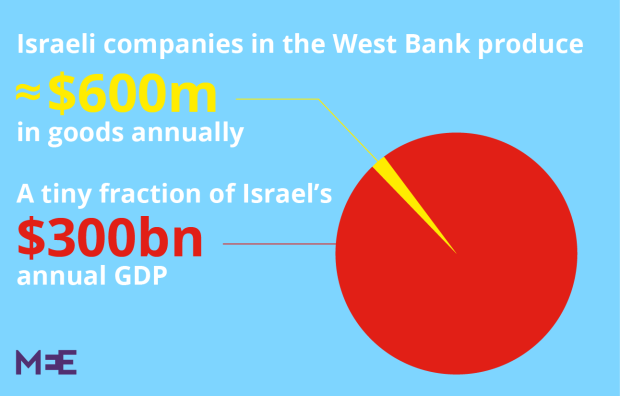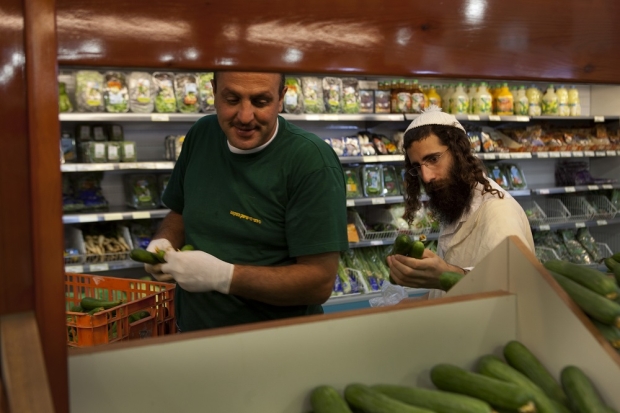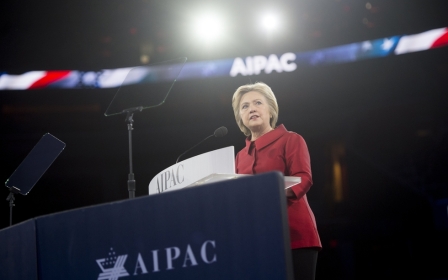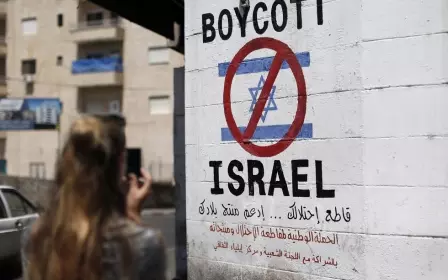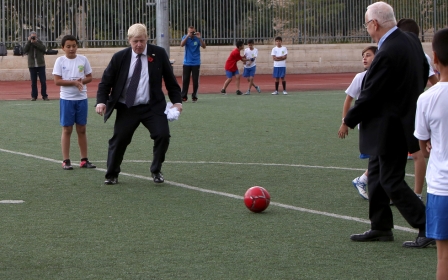BDS: Settlement companies vowing to dig in for the long fight
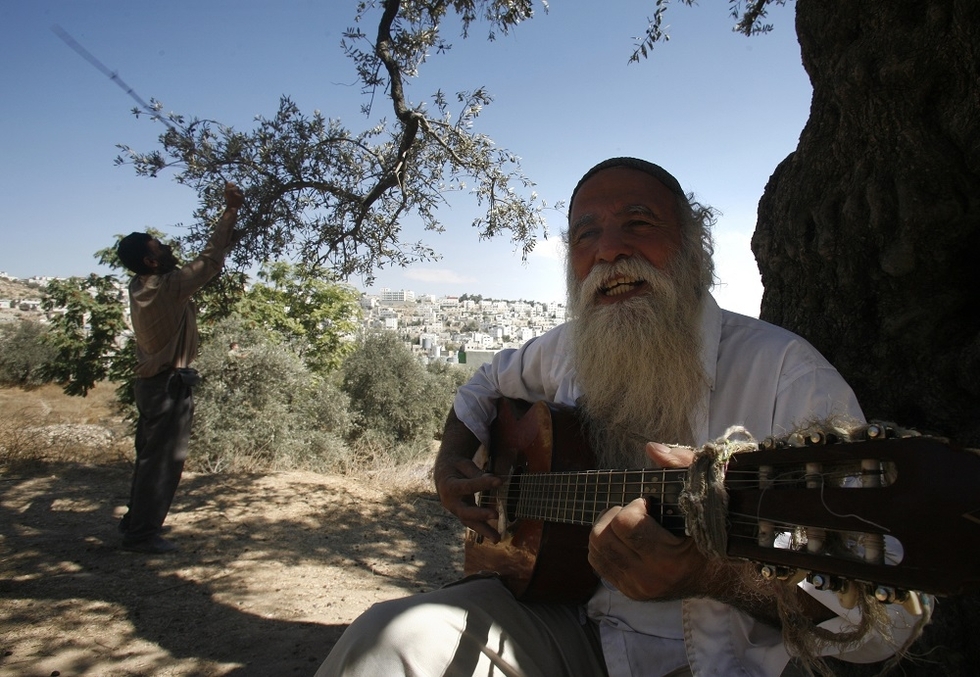
BARKAN INDUSTRIAL PARK, West Bank - When Moshe Lavran commutes to his office at TwitoPlast, an air-conditioning plant, nestled in the rolling hills of the West Bank, he says he does not feel that he is crossing into contested territory.
“Our being here is a statement that we see this land as Israel, we’re not going anywhere,” said Lavran, the company’s export manager for the past 18 years.
The factory’s location is 15 minutes from the settlement of Ariel and on land considered illegally occupied by most of the international community, which also condemns the expansion of settlements for challenging any future Israeli-Palestinian negotiations.
The factory and many others like it are at the centre of a growing controversy about the Boycott, Divest, and Sanctions (BDS) movement, which has been calling for the world to shun all Israeli-owned businesses located across the Green Line in land that Palestinians see as part of their future state.
Lavran says that Jews and Palestinians here work in peaceful coexistence and that the Jewish influence in the area has been positive, injecting money into the Palestinian economy and building infrastructure from which surrounding Palestinian villages can also benefit. However, he declined to comment on the distinct realities experienced by his Palestinian employees, who are subject to military checkpoints, human rights violations and land confiscation and have few alternative employment opportunities.
There are approximately 1,000 companies operating in 16 to 20 settlement industrial zones, 9,300 hectares of settlement agricultural land and 11 licensed settlement quarries. They represent only a portion of the settlement economy, which also includes companies servicing and financing settlements. Some 30,000 Palestinian workers are currently employed in West Bank settlements, according to Jumaa Jamal, one of the founding members of the BDS committee.
Barkan Industrial Park was originally built in 1982 as part of a programme to strengthen Israeli presence in the West Bank where at least 400,000 Israelis now live in contravention to international law. Lavran said that the economic impact of BDS has been minimal here so far but expects that this could change if the boycott is expanded. If it does, he says Palestinians will be the first to lose out.
“Our capacity will be reduced, and we will fire Palestinians...they will have nowhere to go,” said Lavran.
BDS threatens to increase the financial burden that settlements, with their large imprint of military and infrastructure costs, impose on Israel.
Mixed BDS bag
The debate over BDS has been heating up since November when the European Union issued guidelines for labelling products from Israeli settlements in occupied Palestinian and Syrian territories, worrying companies in the West Bank, the Golan Heights and the Jordan Valley that they may lose one of their most valuable trade partners. The policy makes products from those areas easily identifiable and subject to higher duties than those imported from Israel, which has a free trade agreement with the EU.
At-home carbonisation company Soda Stream, Teva Pharmaceuticals, as well as the Dead Sea minerals cosmetics company Ahava have all moved and signs are that further closures could be in the pipeline.
According to the Gush Shalom group, which monitors Israeli businesses working in the West Bank, 20 to 30 percent of all Israeli businesses there have shut their doors and relocated in the last 20 years.
The group’s spokesperson Adam Keller admitted to Haaretz that this was a “very rough estimate” but said that the downward trend was nonetheless “very clear”.
However, the threat to businesses in the occupied territories should not be exaggerated.
The EU move is non-binding on member states and only impacts a small part of the economy. While Europe is Israel’s largest export market, most of the Israeli companies in the West Bank produce about $600m in goods annually – a tiny fraction of Israel’s $300bn annual GDP.
The EU law that requires labelling place of origin affects mostly agricultural products, wines and cosmetics which in total make up less than one percent of all Israeli exports to Europe.
Regardless though, Israeli politicians are worried about BDS and many have condemned the pressures as discriminatory and anti-Semitic.
“There are those who look at Israel’s strong alliances [with Western powers], and yearn, for one reason or another, to isolate Israel and to weaken its standing internationally,” said Israeli President Reuven Rivlin, who participated in an anti-BDS conference organised by the Israeli news organisation Yediot Ahronot.
“The BDS movement is a movement which rejects Israel's existence, and has on multiple occasions spread modern-day blood libels. It doesn't advance peace, but hatred. It is our responsibility to take apart this organisation.”
However, many Israelis also claim that media coverage is BDS’s greatest weapon and the group has proven skilled at exploiting fissures within the pro-settler administration made up of a coalition of right and far-right parties led by Prime Minister Benjamin Netanyahu.
“Unfortunately, this has been the modus operandi of the Israeli left for some years now: create a bogeyman with which to scare the Israeli public into pulling-out of Judea and Samaria,” wrote David M Weinberg, director of public affairs at Bar Ilan University’s Begin-Sadat Center for Strategic Studies, in the pro-Netanyahu daily Israel Hayom. “In parallel, politicians on the Israeli right have at times reverted to such scare tactics as well. They and some right-wing activists in the world Jewish community increasingly seem happy to cry ‘gevalt, boycott!’ because it provides evidence that anti-Semites who want to dismantle Israel are everywhere - as the right always has warned.”
Bye Britain, hello China
Whatever the political debate, however, Israeli business owners in the occupied territories have vowed to fight tooth and nail to stay there.
Kuki Elbaz, head of the Jordan Valley Medjhool Date groves, said he has lost around 25 percent of export business to Europe since the guidelines were put in place nearly half a year ago, but that he is generally not too worried.
He has devoted serious funds to pursuing advertising in alternative markets in China, Africa and South America, as well as among religious pro-Israel Jewish or Christian communities in Europe.
“Where we lose in a shop in London, we make up, and even go beyond, in sales in other countries that don’t have an interest in getting involved in our politics,” said Elbaz.
Elbaz’s date groves were first planted in 1967, but he rejects the claim that his plantations pose any threat to future peace negotiations, which, he said, “are not coming any time soon, given that the politicians don’t want to allow Jews and Arabs to live in quiet”.
He added that he expects Europe to reverse its BDS policies as soon as it realises that it has more culturally in common with Israelis than it does with Palestinians, or “Arabs”.
“Europe will start to wake up, and realise that the issue is religion, they want to kick out the Jews first, and then kick out the Christians. The goal of Palestinians is not Palestinian statehood, but that there will be no Jews,” he said.
New MEE newsletter: Jerusalem Dispatch
Sign up to get the latest insights and analysis on Israel-Palestine, alongside Turkey Unpacked and other MEE newsletters
Middle East Eye delivers independent and unrivalled coverage and analysis of the Middle East, North Africa and beyond. To learn more about republishing this content and the associated fees, please fill out this form. More about MEE can be found here.


